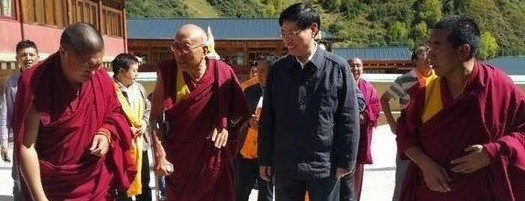Living Buddha Achok Rinpoche, a former senior member of the Dalai Lama clique who was exiled to India, returned to China in May and has settled down in the Aba Tibetan and Qiang Autonomous Prefecture, Sichuan Province, in what experts are interpreting as an indication of the declining influence of the Tibetan separatist movement.
Rinpoche decided to settle down in the prefecture after receiving approval from Sichuan in April.
"Now I am a real Chinese citizen," Rinpoche said when he was visited by Cui Baohua, a member of the Communist Party's Standing Committee of the Sichuan Provincial Committee. "And all I want to do is to fulfill my duty as a Chinese citizen."
Rinpoche has ignored an invitation from the Dalai Lama for his birthday celebration in July.
"It's a brave and praiseworthy move," said Xiong Kunxin, a professor of ethnic studies at the Minzu University of China, in a statement to the Global Times.
Rinpoche fled to India after the uprising led by the Dalai Lama failed when he was 15. He has been appointed as head of a "Tibetan Hospital" and a library director for the Dalai Lama's "government-in-exile."
Briefly returning to China in 1982, Rinpoche made several visits to his homeland. However, it was only after a fall that injured him while in Nepal in Dec. 2014 that the living Buddha expressed his desire to return to China permanently.
Part of the reason he came back is that it is stronger, with an increasingly significant position in the world, according to Xiong.
Xiong also said that Rinpoche's return indicates to a certain degree the dying momentum of the Dalai Lama group. He also added that Rinpoche showed that China's religious policy, as well as its policy toward returning Tibetan exiles, is correct.
Director of the Institute for Religious Studies under the China Tibetology Research Center, Li Decheng said that not many exiled Tibetans have returned to China, despite living hard lives abroad, with a strong attachment to their homeland.
Since 1978, China has practiced the policy of "free movement" stating that it forgives exiled Tibetans and Buddhists of their past misdeeds when they choose to come back to China. The government's official statement says that, "all patriots belong to one big family, whether they rally to the common cause now or later, and bygones can be bygones."
The Tibet regional government has released a document where it specifies rules relating to housing, employment and other aspects in support of the "free movement" policy.



























